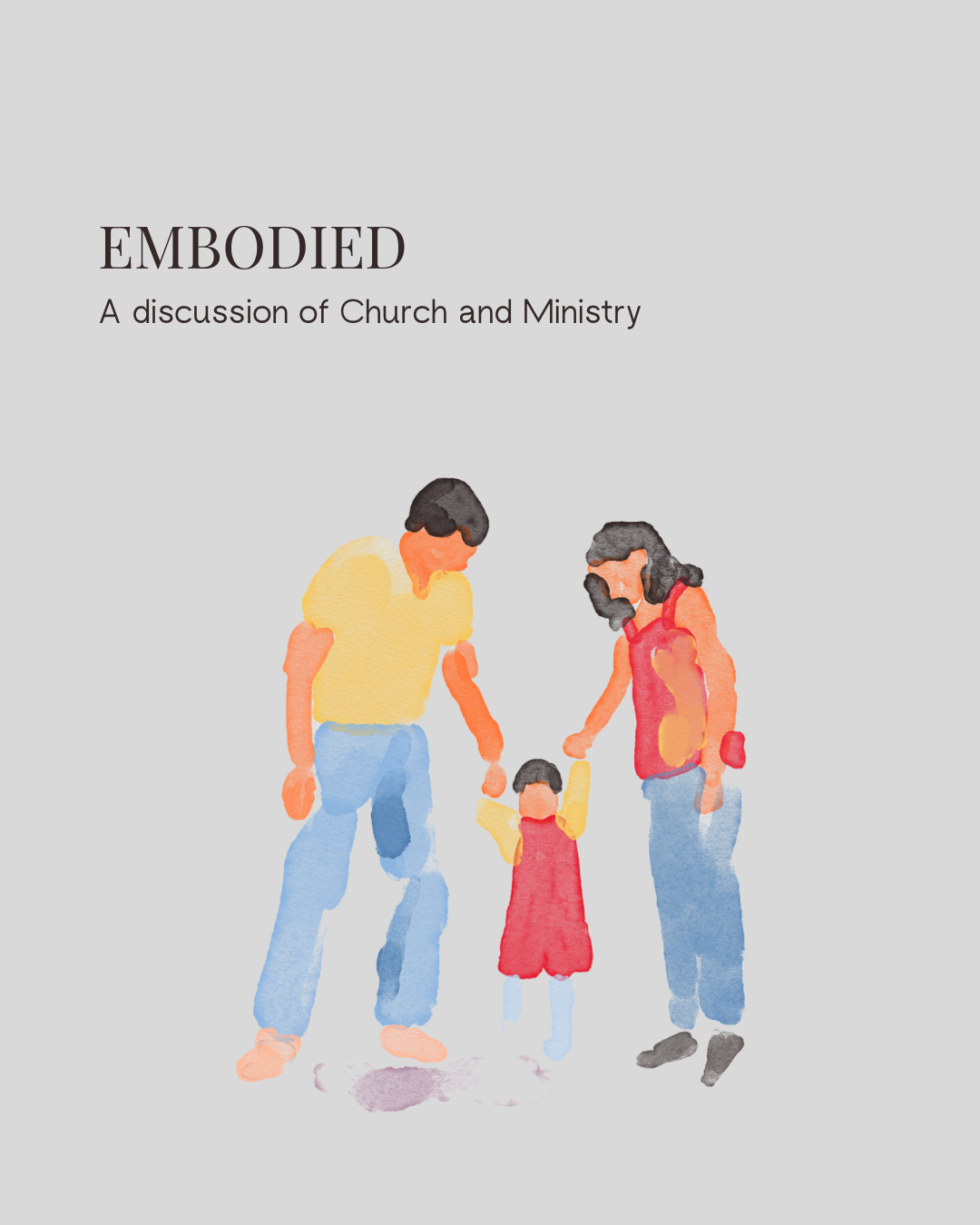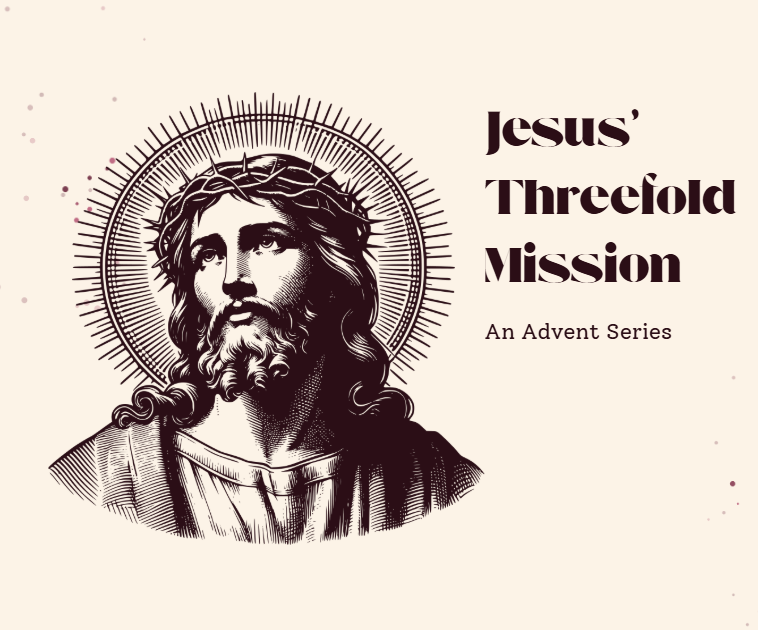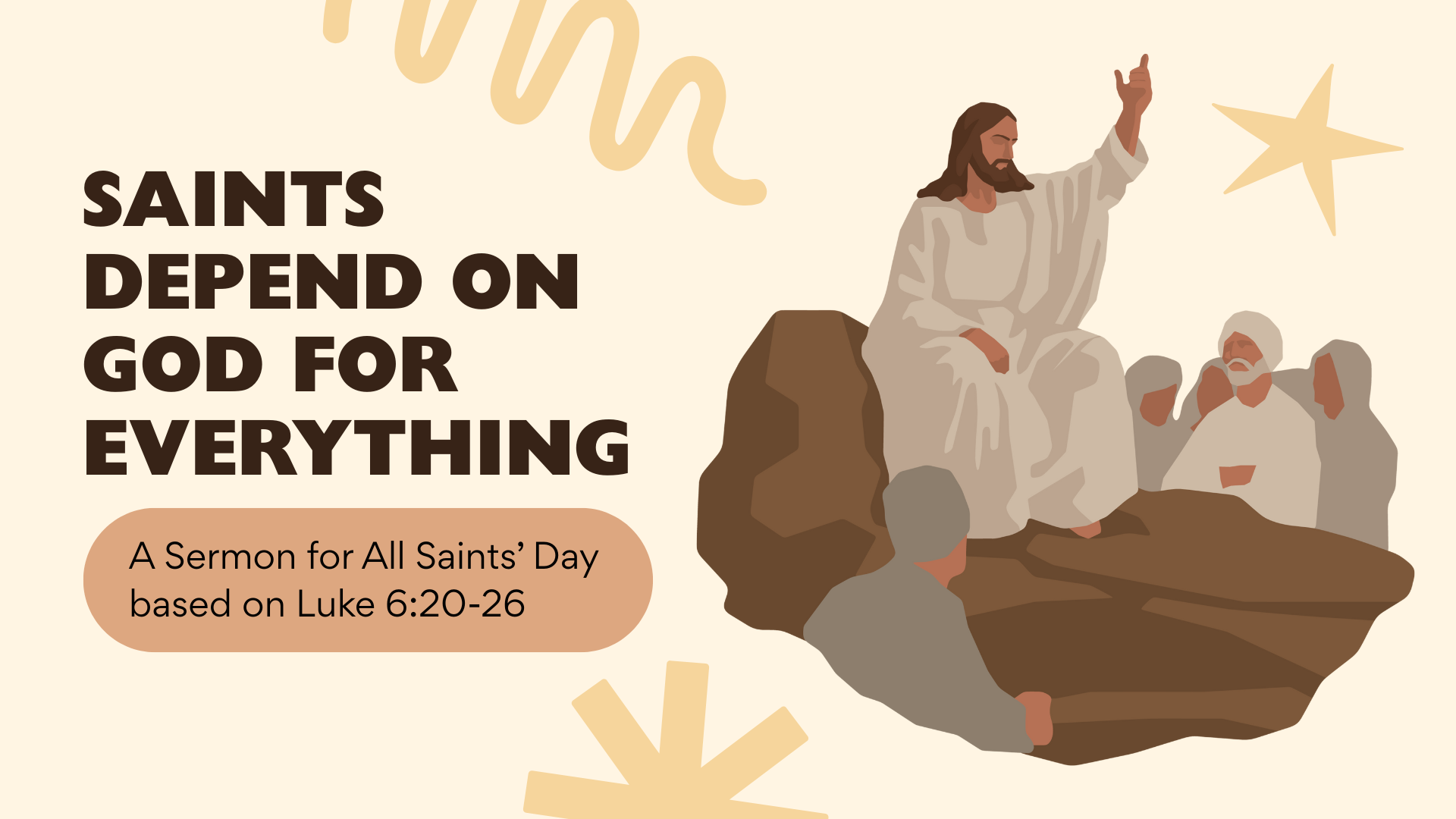Embodied (A Discussion of Church and Ministry)

Don’t worry. The irony is not lost on me. Here I am, trying to write a blog post describing the function and role of the church. Here you are, reading this post off of a screen or a print-out of our Newsletter (Shout out to Susan for preparing it!). Unfortunately – and I do mean unfortunately – for some, this may be their only experience of church: words written by someone they will never meet in person – despite the desire held by every pastor that prepares content like this: that it will lead the viewer and reader to connect to the ministry in deeper ways (I’m assuming).
I don’t think writing this devotion is a waste of my time, nor of yours in reading it. If you’ve had faith related questions answered or your trust in Christ deepened by online content, that must be counted as a win! But don’t we find that Scripture pushes us to engage in deeper ways as well?
I’d like to focus primarily on one of these “push” passages. The Apostle Paul wrote that “Christ himself gave the apostles, the prophets, the evangelists, the pastors and teachers, to equip his people for works of service, so that the body of Christ may be built up until we all reach unity in the faith and in the knowledge of the Son of God and become mature, attaining to the whole measure of the fullness of Christ. […] Speaking the truth in love, we will grow to become in every respect the mature body of him who is the head, that is, Christ” (Ephesians 4:11-13, 15). Dwelling on this passage together, we can reach a few important conclusions:
Conclusion A: The church and its ministry are all about Jesus. If that’s obvious to you, that’s good! Nothing is more obvious than your and my need for Christ, because “all have sinned and fall short of the glory of God” (Romans 3:23). Scripture reveals that there isn’t a single person in this world that can save themselves apart from Christ (this is the message of the Law). “And all are justified freely by his grace through the redemption that came by Christ Jesus” (Romans 3:24), which means that salvation and love (the message of the Gospel) are fully available to all through Christ. To be the church Jesus wants and designs means that every ministry endeavor that is undertaken must guide sin-sick souls to the refreshing waters of the gospel. Then, the church is fulfilling its God-given role.
Conclusion B: Life is challenging, and so is living in the light of this gospel. We need guidance, support, and fellowship. Just think about this devotion series! We’ve walked through tons of essential doctrines that Scripture teaches and the Lutheran church preaches. How many times have you wondered, “So now what? What does this mean for my life now? For my day tomorrow? How do I take this and follow through with it? How do I treat people who don’t believe this truth? What if I don’t fully understand this yet?” For this, Christ has given us each other. He gives pastors. He gives parents. He gives members of church council. He gives church elders. He gives Sunday School teachers. He gives older, wiser believers who have been around the block (so to speak) and can mentor youth. He gives young (and “young in the faith”) members with fresh perspectives that challenge us to consider truths from different angles. He gives us the truth of Law and Gospel to ground us. He gives us each other to “spur one another on toward love and good deeds” (Hebrews 10:24).
Conclusion C: Jesus designed an embodied ministry. (Hopefully you caught the pun.) Modern technology offers a superabundance of methods to connect, learn, and grow – and none of these should be discredited! However, as research conducted by secular scientists seem to suggest, when anonymous communication via internet replaces person-to-person, face-to-face interaction, we suffer. Our emotional well-being, our growth, and our self-images can be harmed. That makes sense from a Biblical perspective. It’s hard to envision the growth, the sharpening, the “spurring one another on,” and the specific answers to that question “So what now?” to happen meaningfully without person-to-person interaction. Just as Jesus took on a body to make God’s love real and personal in your life (1 John 4:12), the church becomes Christ’s body, where the gospel is lived and shared through in-person worship services, person-to-person fellowship and study, and concrete community efforts.
But just because this is how Christ wants the church to be, doesn’t mean the church is always great at it. Pastors can be caught leading people to themselves rather than to Christ. Churches can be caught chasing recognition and cultural relevance rather than chasing Christ. Leaders and members can focus more on their favorite, comfortable ministries above the central gospel message. Leaders can think they’re showing members how to “live for Christ,” when they’re actually bullying them to fall in line and not make noise. Their methods of leadership can suffocate members from airing questions, voicing doubts, confiding about their temptations and their laments. The church and its members can get so caught up in learning their Bibles that they forget about reaching the lost (i.e. doing what is commanded in the Bible). Pastors can start to think that their charisma, charm or whit is what people show up for on Sunday, rather than the gospel. We can focus so much on our version of what “love” is that we forget about the call to speak God’s truth. We can focus on our preferred version of the “truth” that we forget the call to speak it in love (read Ephesians 4:15 again). All of these things can happen without our knowing the errors we’re committing.
In fact, it happens a lot. As I have listened to the stories of people who were willing to share their journey with the church, I’ve heard some common themes. To some, church was an obligation to them, and they left it as soon as they could. For a variety of reasons, it was not the place of rest and encouragement Christ designed it to be for them. Some have been harmed by a church or a church leader. In errors that rank anywhere from a lack of social awareness to outright abuse, they mishandled their calling to shepherd people to Christ. The ones who are sinned against in this way are left with such a strong impression of church hypocrisy and lovelessness that they are left, for a time, unwilling to think of church as a place of healing and help.
In response to these things, let me get personal. My heart breaks for the hurt that church leaders and churches cause every day because they fail to lead people to Christ using his Word. There is also reason to become afraid, because I know that of the mistakes mentioned above, I have committed every one of them – sometimes all in one day! If the success of the church rests on me – my charisma, my strength, and my faithfulness – it is doomed. However, God responds to my heartache and fear about the human element in his church the same way he responds to yours: go to Christ. It’s his Church. It’s his Body.
This Sunday we’re celebrating Christ’s Ascension into heaven. After he rose from the dead, and before he was taken up into heaven, he chose his parting words to us carefully. In Luke’s account, Jesus declares to us the centrality of his redemptive work for the life of the church when he says, “This is what is written: The Messiah will suffer and rise from the dead on the third day, and repentance for the forgiveness of sins will be preached in his name to all nations, beginning at Jerusalem. You are witnesses of these things” (Luke 24:46-48). Matthew adds to this discharge of duty a tremendous comfort, when Jesus says, “All authority in heaven and on earth has been given to me. Therefore go and make disciples of all nations, baptizing them in the name of the Father and of the Son and of the Holy Spirit, and teaching them to obey everything I have commanded you. And surely I am with you always, to the very end of the age” (Matthew 28:18-20).
The message we are given, that we are ‘witnesses of,’ and to which the entire Bible points, is to the immeasurable and unconditional love of Christ for sinners. My weakness as a leader and pastor doesn’t subtract from the glorious message of the gospel – it proves it. My weaknesses prove my need for forgiveness of my sins just as much as any of the people I pastor. Our struggles to live out our callings as Christ’s church only prove the necessity of his presence and work. The fact that we fall short of Christ’s ideal prove to us that none of us is Christ, that we all need him, and refocus us on the gift that this ministry is founded first-and-foremost upon Christ’s work, Christ’s love, and Christ’s message. Where we’ve deviated from these, repentance is required. Where we have failed each other, forgiveness must be asked. Where there is confusion, returning to Christ through the Word and Sacraments is the solution. And--- wouldn’t you know it? -- as we respond to our weaknesses in these ways, we are being the Church.
We hope that you are blessed by online faith-related content. We also hope, and pray, that you enjoy the deep blessings that come from the person-to-person ministry that is founded upon and fully centered on Christ.
Pastor Mike Cherney







